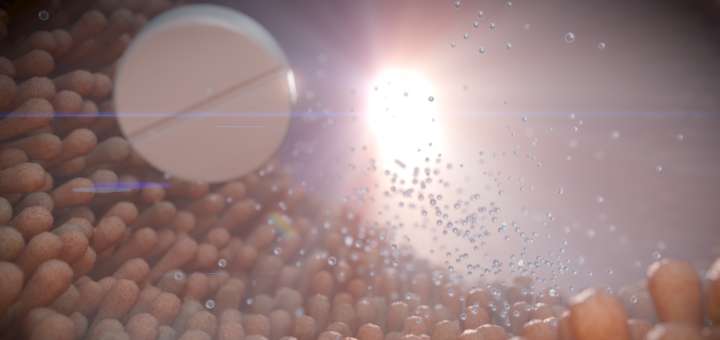Key Differences Between Clinical and Commercial Manufacturing
While both clinical trial material manufacturing and commercial drug manufacturing share the goal of delivering safe and effective therapies, they differ significantly in purpose, scale, and regulatory requirements.
- Purpose: Clinical manufacturing supports drug research by producing small batches for investigational use, whereas commercial manufacturing focuses on mass production for market distribution.
- Scale: Clinical batches are often produced in limited quantities to meet trial needs, requiring flexibility and customization. In contrast, commercial pharmaceutical manufacturing operates at a much larger scale to meet global demand.
- Regulatory Oversight: Clinical trial manufacturing follows evolving protocols based on study phases, while commercial manufacturing must meet strict FDA and global regulatory standards to ensure consistency and compliance.
- Process Control: Clinical production requires adaptability to modify formulations or dosages based on trial results. Once a drug reaches commercial manufacturing, processes must be standardized and optimized for efficiency.
These distinctions shape the overall drug development timeline and impact how companies prepare for regulatory approval, scaling, and supply chain logistics.
The Role of Clinical Trial Material Manufacturing
Clinical trial material manufacturing is a critical stage in drug development, supporting early-phase research and ensuring investigational drugs are available for clinical studies. This phase prioritizes flexibility, precision, and compliance with evolving regulatory requirements.
Key aspects of CTM manufacturing include:
- Small-Scale Production: Manufacturing is limited to the quantities required for preclinical and clinical trials, often involving custom formulations.
- Adaptive Processes: Trial data may lead to adjustments in dosage forms, formulations, or manufacturing methods between study phases.
- Regulatory Considerations: Compliance with Good Manufacturing Practices (GMP) is required, but with allowances for modifications based on study outcomes.
- Supply Chain Coordination: Managing logistics, including randomization, blinding, and storage, ensures that investigational drugs reach trial sites efficiently.
A well-executed clinical manufacturing strategy helps streamline the transition to commercial pharmaceutical manufacturing, reducing delays and ensuring a smooth scale-up process.

Scaling Up: The Transition from Clinical to Commercial Manufacturing
Moving from clinical trial material manufacturing to commercial drug manufacturing presents a unique set of challenges. As production scales, companies must balance efficiency, regulatory compliance, and quality assurance to meet market demands.
Key challenges in this transition include:
- Process Validation: Unlike clinical manufacturing, where formulations may evolve, commercial production requires validated, reproducible processes to ensure batch consistency.
- Regulatory Approval: Scaling up requires adherence to strict commercial pharmaceutical manufacturing guidelines, including FDA and international regulations. Manufacturing sites must be inspected and approved before full-scale production begins.
- Technology Transfer: A seamless handoff from research and development (R&D) to large-scale manufacturing is critical. This involves transferring knowledge, equipment, and production methods while maintaining product integrity.
- Supply Chain Management: Clinical supply chains are relatively contained, whereas commercial manufacturing demands robust logistics, including raw material sourcing, large-scale distribution, and long-term storage planning.
By strategically addressing these challenges, pharmaceutical companies can accelerate the path to market, minimize disruptions, and ensure compliance throughout the commercialization process.
The Importance of Flexibility in Clinical Trial Material Manufacturing
Flexibility is a defining characteristic of clinical trial material manufacturing and plays a crucial role in supporting drug development. Unlike commercial manufacturing, which relies on standardized processes, clinical production must accommodate evolving study requirements, regulatory updates, and formulation adjustments.
Why flexibility matters in clinical trial manufacturing:
- Protocol Adjustments: As clinical trials progress, modifications in dosage, formulation, or delivery methods may be required based on patient responses and safety data.
- Batch Variability: Unlike commercial pharmaceutical manufacturing, which focuses on mass production, clinical manufacturing often requires small, variable batch sizes to accommodate different trial phases.
- Regulatory Adaptability: Each phase of clinical research is subject to regulatory changes. Manufacturers must be agile in implementing new compliance requirements without disrupting trial timelines.
- Customized Packaging & Labeling: Clinical supply chains require specialized packaging, often including blinded or randomized labeling to maintain trial integrity.
A flexible CTM manufacturing approach ensures that investigational drugs remain available throughout the trial process, preventing delays and supporting successful study outcomes.
Efficiency and Compliance in Commercial Drug Manufacturing
Once a drug receives regulatory approval, it moves from clinical trial manufacturing to commercial drug manufacturing, where efficiency, scalability, and strict compliance become top priorities. Unlike CTM manufacturing, which emphasizes flexibility, commercial pharmaceutical manufacturing is designed for large-scale, reproducible production to meet market demand.
Key aspects of commercial manufacturing include:
Regulatory Stringency
While clinical manufacturing allows for iterative adjustments, commercial production must adhere to strict Good Manufacturing Practices (GMP) and undergo regular inspections by agencies like the FDA and EMA.
Scalability & Cost Efficiency
Large-scale commercial manufacturing optimizes processes to reduce waste, enhance production speeds, and ensure cost-effective drug distribution.
Supply Chain Reliability
Managing raw materials, production schedules, and global distribution requires a well-coordinated supply chain to prevent shortages or delays.
Quality Control & Batch Consistency
Unlike clinical trial material manufacturing, where formulations can evolve, commercial production must ensure uniformity across all batches through validated processes and continuous monitoring.
By focusing on efficiency and regulatory compliance, commercial manufacturing enables pharmaceutical companies to deliver life-saving therapies at scale while maintaining safety and efficacy.
FAQs About Clinical vs Commercial Manufacturing
Understanding the differences between clinical trial material manufacturing and commercial drug manufacturing is essential for navigating the pharmaceutical development process. Below, we answer common questions about flexibility in clinical manufacturing, challenges in transitioning to commercial production, and how timelines differ between these phases.
Why is flexibility important in clinical trial material manufacturing?
Flexibility in clinical trial material manufacturing is essential because investigational drugs often undergo modifications during different trial phases. Changes in dosage, formulation, and regulatory requirements may arise based on study results. A flexible approach ensures that manufacturers can quickly adapt to these shifts without delaying clinical research.
What are the challenges of transitioning from clinical to commercial manufacturing?
The shift from clinical manufacturing to commercial pharmaceutical manufacturing involves several challenges, including process validation, regulatory approvals, and supply chain scaling. While clinical trial manufacturing allows for small-batch adjustments, commercial production demands strict consistency, efficiency, and compliance with FDA and global regulations. Managing this transition effectively is critical for avoiding delays and ensuring a smooth market launch.
While clinical trial manufacturing allows for small-batch adjustments, commercial production demands strict consistency, efficiency, and compliance with FDA and global regulations. Managing this transition effectively is critical for avoiding delays and ensuring a smooth market launch.
How do timelines differ between clinical and commercial manufacturing?
Clinical trial manufacturing operates within trial-specific timelines, which can be unpredictable due to protocol changes and regulatory reviews. In contrast, commercial manufacturing follows a more structured schedule, focused on long-term production and distribution planning. Regulatory approvals, facility inspections, and supply chain logistics all contribute to the extended timelines required for commercial-scale production.
CONTACT US
Partner with UPM Pharmaceuticals for End-to-End Manufacturing Solutions
Navigating the transition from clinical trial material manufacturing to commercial drug manufacturing requires expertise, precision, and regulatory compliance. At UPM Pharmaceuticals, we provide flexible clinical manufacturing solutions and scalable commercial pharmaceutical manufacturing services to support every stage of drug development.
Learn more about our clinical manufacturing or our commercial manufacturing capabilities to see how we can help bring your product to market efficiently and compliantly.
Let's Talk
